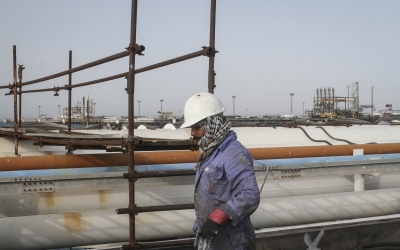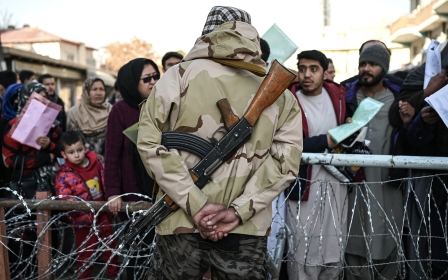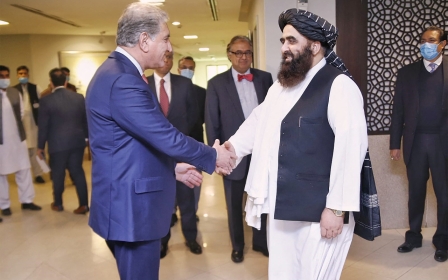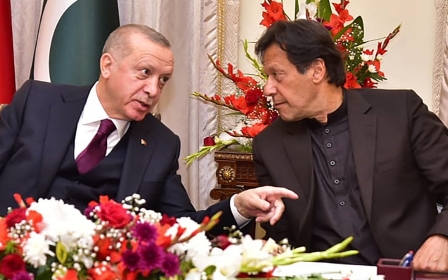Iranian official says Tehran not ready to recognise Taliban government

Iran's foreign ministry spokesman said Monday that Tehran was not ready to recognise the Taliban government as Afghanistan's de facto authority.
Speaking at a news conference in the Iranian capital Tehran, Saeed Khatibzadeh told reporters: "Today, we are basically not at the point of recognising."
"We hope that the governing body of Afghanistan will move, through its actions, in a direction that will enable it to achieve international recognition," he said.
Khatibzadeh's comments came a day after Iran's ambassador to Afghanistan said the Islamic Republic would not recognise the Taliban government unless it was inclusive.
"Iran and the neighbouring countries of Afghanistan insist particularly on the formation of an inclusive government which reflects the ethnic and demographic diversity of this country," Bahadur Aminian told local broadcaster Tolo News.
New MEE newsletter: Jerusalem Dispatch
Sign up to get the latest insights and analysis on Israel-Palestine, alongside Turkey Unpacked and other MEE newsletters
Iran is one of 11 countries, including Russia and China, that have maintained diplomatic outposts in Afghanistan. However, no nation has officially recognised the Taliban government as legitimate, following the group's rapid takeover of the country in August.
Tehran had opposed the Taliban when it was in power between 1996 and 2001 and coordinated with the US in overthrowing the group. But last year, when the US and western countries withdrew from the country, Iranian President Ebrahim Raisi celebrated what he called Washington's "military failure" and said it was an opportunity to restore peace and security.
Iran has had a complex relationship with the Taliban since its takeover. The countries share a porous 900-kilometre border and are both subject to debilitating US sanctions.
Isolated from the global financial system and sharing a common animosity towards the US, they have deepened economic and trade ties. Earlier this year, Middle East Eye reported how amid the chaotic US withdrawal, Iran continued to sell fuel to Afghanistan while still under a US sanctions waiver.
At the same time, clashes have erupted between Iranian soldiers and Taliban forces along their shared border.
Tehran is also concerned about the flow of drugs and refugees and must also contend with the threat of terrorism emanating from the Islamic State group's (IS) offshoot in the central Asian country.
The risk of persecution Afghanistan’s Shia minority faces from terrorism has also stoked worries.
The Hazara, the third-largest ethnic group in Afghanistan, represent the backbone of the Shia minority and are concentrated in the mountainous regions of central Afghanistan, especially in the provinces of Herat, Kabul, Bamiyan, Helmand, Ghazni and Mazar-i-Sharif.
Middle East Eye delivers independent and unrivalled coverage and analysis of the Middle East, North Africa and beyond. To learn more about republishing this content and the associated fees, please fill out this form. More about MEE can be found here.





